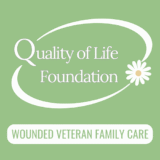Caregiving is a journey of at least two people— the caregiver and the care receiver. It’s not a race to the finish. There are detours, diversions, and sometimes roadblocks. Sometimes your journey is a straight, flat four lane highway with light traffic and sunny skies; other times your journey is a winding one lane mountain path with a sheer drop off on one side, mountain on the other, with oncoming traffic, and mudslides. There will be some parts of your journey that you will want to take out and pour over the “preserved” memories—snapshots if you will. There will be other parts that you will want to forget—the harrowing part of the journey that you will revisit in your nightmares. And there will be the lingering questions of when will the journey come to an end, how will that end be determined, will you be prepared for the journey’s end, and will it end how you want it to?
I came to caregiving gradually and in a rapid ascent all at the same time. My husband returned home from Iraq with his unit in 2007, and it was obvious there were problems. We sought treatment to address the problems. The treatment was slow in coming. The worsening of symptoms and lack of treatment was gradual, until it wasn’t. At the point my husband stuck a knife to his throat in the base psychiatrist’s office and he was sent hours away to a hospital where he was immediately declared unfit to continue to serve, set on a path to medical retirement, and told he would need a lifetime of treatment to address all of the problems, not the least of which were the mental health issues which led to the original hospitalization, my journey into caregiving took off with the speed and force of a Lear jet.
As a caregiver, I have had to choose sometimes to make sacrifices in order to get my care receiver what he needs. Sometimes this means that I have sent the children away to stay with grandparents because I simply cannot be in two places at one time; and sometimes that means that I must be at the hospital for surgeries, even when I would rather be at a marching band competition or eating s’mores on the couch while watching Harry Potter. I have had to give up parts of my independence to be the caregiver on this journey— my financial independence, my retirement plan, my employer sponsored health insurance, etc.
So in this world of being a caregiver, how did I yank the steering wheel back? At some point, I realized that the only person who was going to be able to consistently take this journey with my care receiver was me. I was the only person who was going to have more than a nine to five, Monday to Friday, interest in his well-being for the rest of his journey. And that meant I had to stop listening to what was going to happen if I remained passive in the process, versus what could happen if I actively and forcefully engaged. And that’s what I did.
I yanked the wheel back. I worked on advocating and educating lawmakers on what needed to be done for veterans and their caregivers, including promoting helpful legislation and testifying before various committees and panels in government. I joined organizations that were assembling in D.C. and my state to identify the problems, propose solutions, and monitor and review progress. Through work promoting legislation and sitting on nonprofit roundtables, I was able to move my interests into working for a nonprofit that serves caregivers of the wounded, ill, and injured. And I have recently worked on becoming a professional organizer, because order in the chaos appeals to me.
Occasionally, the journey’s speed has been too much, and I have had to pull the vehicle to the side of a road to rest. I’ve stepped back from organizations when I needed a break. I’ve left baggage from this journey when I simply needed to be able to move on— for example, we quit fighting VA for some care, even if it should be provided there, and transitioned things to Medicare and TRICARE. I don’t always have to take every side trip on this journey.
Caregiving is a journey. Sometimes it drives you, sometimes you drive it. Decide what you want out of this journey, and try to make sure you get there. Your path will not be straight from point A to point B. Your focus should be on how to get from point A to point B while still taking the detours that will be forced upon you by DOD, VA, health issues, and just plain old life in general. Bon voyage!


